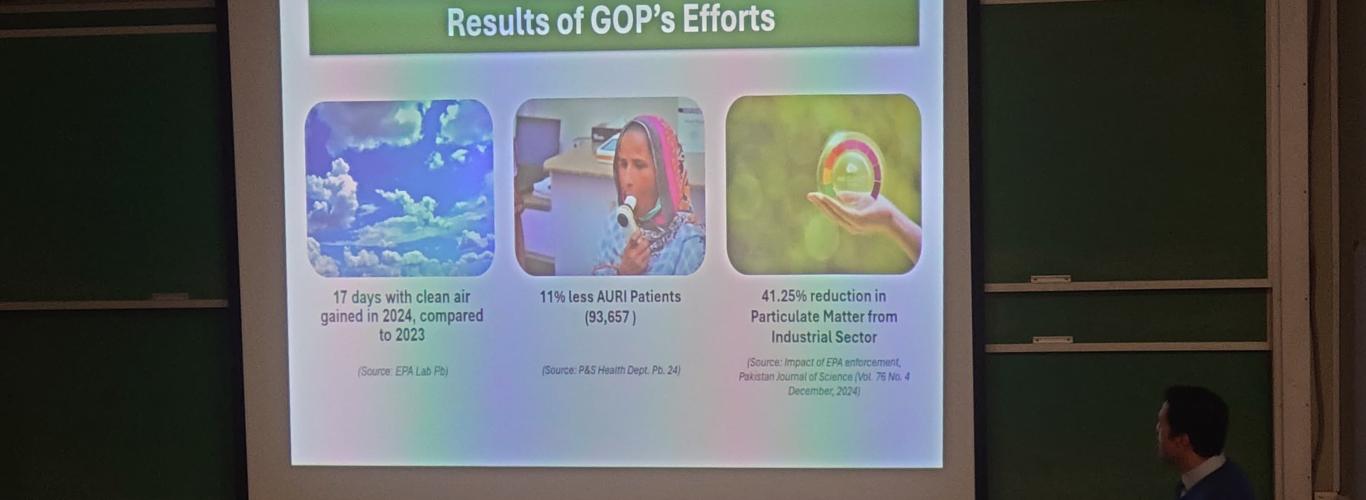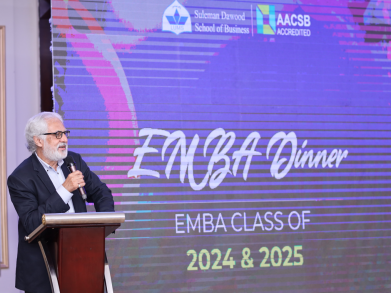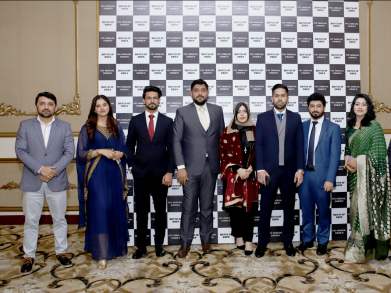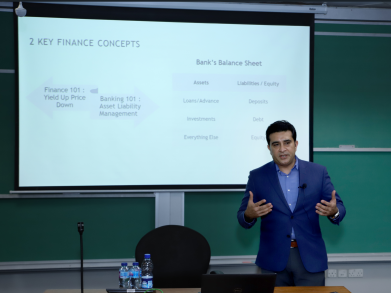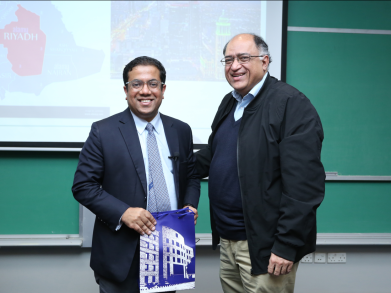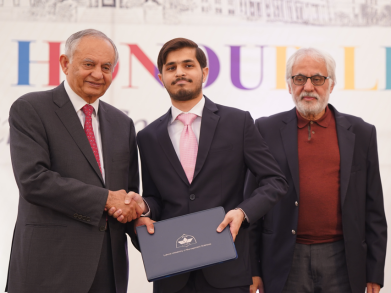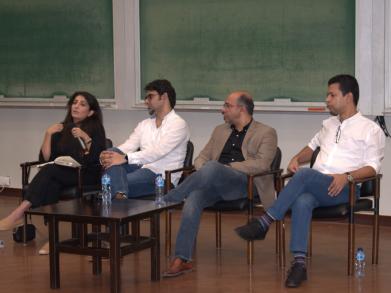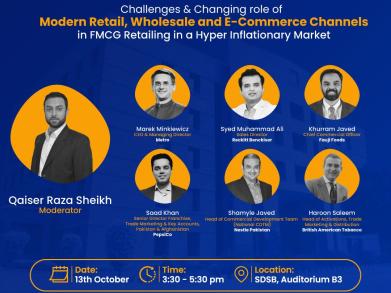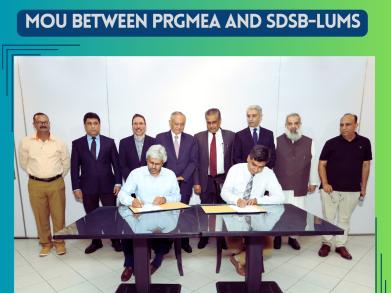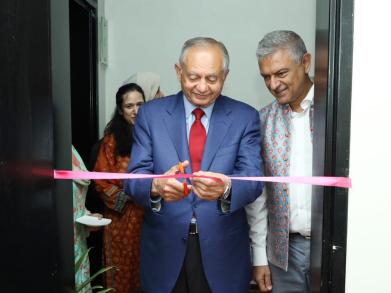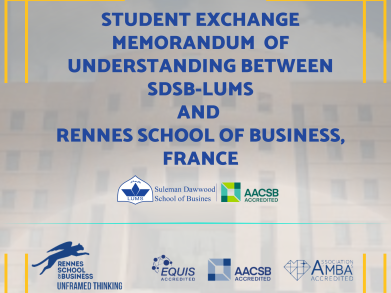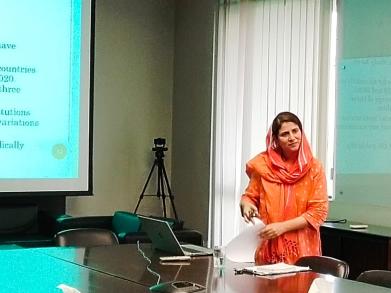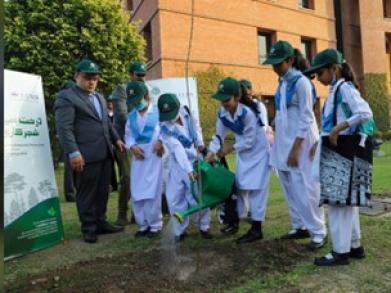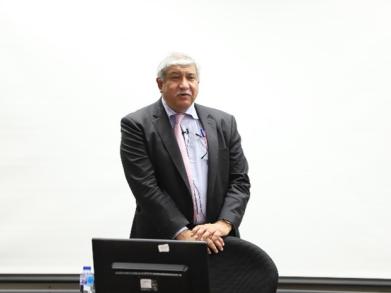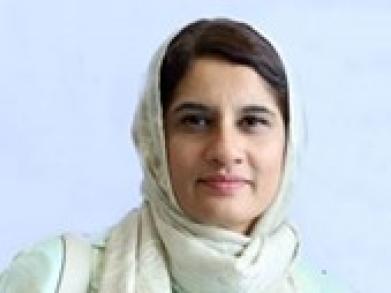An Interactive Session with Students of the Policy Analysis (MGMT 261) Course
On Monday, February 12, 2025, SDSB-LUMS hosted Mr. Imran Hamid Sheikh, Director General of the Environment Protection Agency Punjab, for an interactive session with students of the Policy Analysis (MGMT 261) course. The session was designed to bridge the gap between theoretical frameworks and the practical complexities of public policy implementation.
Mr. Sheikh provided valuable insights into the Government of Punjab’s policy interventions to combat smog, address environmental concerns, and mitigate climate change. He detailed the regulatory measures taken by the government, including emission control policies, industrial compliance standards, vehicular pollution reduction strategies, and the promotion of sustainable agricultural practices to curb stubble burning—a major contributor to air pollution.
A key focus of the discussion was the challenges policymakers face in implementing these measures. Mr. Sheikh highlighted the difficulty of balancing economic growth with environmental sustainability, as industries and businesses often resist stringent regulations that could impact profitability. He also addressed the complexities of stakeholder management, where policymakers must navigate conflicting interests among the government, private sector, and civil society. Additionally, he emphasised the role of public perception in policy execution, noting that without widespread awareness and community engagement, even well-designed policies struggle to achieve meaningful impact.
Students gained a deeper understanding of how real-world policymaking involves constant trade-offs between economic development and ecological conservation. The session encouraged critical reflection on climate resilience, sustainability, and the importance of inclusive policy decisions considering both short-term economic pressures and long-term environmental well-being.
SDSB-LUMS remains committed to fostering academic-industry dialogues that enrich students’ learning experiences and enhance their understanding of policy and governance.

